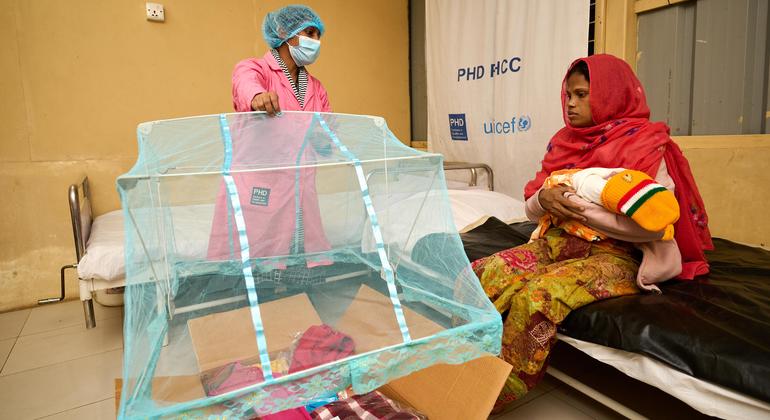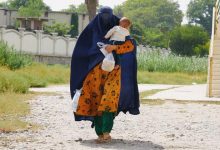Three Countries Rocking It in the Battle Against Diseases: Bangladesh, Maldives, and DPR Korea!
 The World Health Organization (WHO) on Tuesday hailed the elimination of several life-threatening diseases in developing nations as a major breakthrough for public health.
The World Health Organization (WHO) on Tuesday hailed the elimination of several life-threatening diseases in developing nations as a major breakthrough for public health.
Visceral leishmaniasis – a parasitic disease spread by sandflies – has been wiped out in Bangladesh, along with rubella in the Democratic Republic of Korea (more commonly known as North Korea) said WHO in a statement.
Bangladesh has become the first country to be validated for the elimination of visceral leishmaniasis (also known as kala azar), which is a life-threatening neglected tropical disease that is common in the region.
The country achieved the elimination target of less than one case per 10,000 population at a “sub-district level” in 2017, and has sustained this progress despite disruptions caused by the COVID-19 pandemic.
Maldives leprosy milestone
Maldives is the first country to verify an interruption of the transmission of leprosy, having achieved the milestone of no child case detection for more than five consecutive years.
In 2019, Maldives published a framework with clear milestones to reach leprosy elimination by 2030.
An independent assessment team from WHO highlighted high political will and community motivation – along with strong health systems and minimal evidence of stigma and discrimination towards persons affected by leprosy – as the key factors for the island nation’s success.
DPR Korea success
Based on evidence provided by the National Verification Committee of DPRK, the WHO’s Southeast Asia Regional Verification Commission for Measles and Rubella Elimination concluded that the endemic rubella virus has been eliminated from the country.
North Korea introduced the measles-rubella vaccine into standard childhood immunization programmes in November 2019 after successfully carrying out a wide age range immunization campaign targeting nine month to 15-year-old children and 16 to 18-year-old women with measles and rubella vaccines.
Through this mass immunization activity, achieving more than 99.8 per cent coverage in a target population of around six million, the country rapidly built substantial population immunity for rubella.
“Neglected tropical diseases like lymphatic filariasis, visceral leishmaniasis and leprosy, along with the threat to children and young people posed by rubella, require continued national leadership, commitment and collaborative action by countries and health partners worldwide,” said WHO Director-General Tedros Adhanom Ghebreyesus.
“I salute the great progress made, in line with WHO guidance, by Bangladesh and Maldives on protecting their populations from such NTDs, and from Bhutan, DPR Korea and Timor-Leste for their work to eliminate rubella as a public health threat. These achievements will positively impact the lives of the most vulnerable populations now and in the future.”
‘Tremendous Achievements’
Regional Director Poonam Khetrapal Singh congratulated Bangladesh, Maldives, and DPR Korea for these public health achievements at the ongoing seventy-sixth Regional Committee Session. She also commended Bangladesh for the elimination of lymphatic filariasis as a public health problem and Bhutan and Timor-Leste for eliminating rubella earlier this year.
“These are tremendous achievements, an outcome of a deeply held strategic vision and culture that together, over the past decade and beyond, we have created. A vision and culture that strives to advance the health and well-being not of some, or even many people, but of all people, everywhere,” she said.
Elliot is an award-winning journalist passionate about international affairs and humanitarian causes. Elliot has covered stories from conflict zones and areas devastated by disasters, highlighting critical global issues.




Is this a sign that developing countries are becoming more successful in combating diseases compared to developed nations?
Definitely! It’s inspiring to see countries like Bangladesh, Maldives, and DPR Korea making such significant progress in eliminating life-threatening diseases. Their dedication and commitment to public health are truly commendable.
Wow, these achievements are truly remarkable! Do you have any information on the specific strategies or programs that Bangladesh, Maldives, and DPR Korea implemented to achieve these milestones?
Indeed, the achievements of Bangladesh, Maldives, and DPR Korea are commendable. Each country implemented targeted strategies such as robust surveillance systems, community engagement initiatives, effective treatment programs, and strong political commitments to combat these diseases successfully. Continuous monitoring, early detection, and comprehensive healthcare services played pivotal roles in their milestone achievements.
It’s truly inspiring to see countries like Bangladesh, Maldives, and DPR Korea making such significant strides in the fight against diseases. The dedication and hard work of their healthcare systems are commendable, and the results speak for themselves. These successes remind us of the importance of global health initiatives and the impact they can have on improving people’s lives.
Wow, these countries are really making impressive strides! But I wonder, what specific measures have they implemented to achieve such remarkable success in battling these diseases?
Hey EmilySmith123, it’s indeed remarkable to see these countries leading the way in disease control! To achieve such success, they have implemented comprehensive public health strategies, including robust vaccination programs, community awareness campaigns, strong surveillance systems, and effective treatment protocols. Additionally, political commitment, community engagement, and collaboration with international organizations have played crucial roles in their achievements.
It’s truly inspiring to see these countries making significant strides in combatting diseases that once posed major threats to public health. The efforts and dedication of Bangladesh, Maldives, and DPR Korea in eliminating visceral leishmaniasis, rubella, and leprosy respectively are commendable. Their achievements serve as a beacon of hope for other nations facing similar health challenges.
It’s truly inspiring to see countries like Bangladesh, Maldives, and DPR Korea making significant strides in battling diseases and achieving such remarkable milestones in public health. The efforts and dedication of these nations in eradicating life-threatening diseases like visceral leishmaniasis and leprosy are commendable and serve as a beacon of hope for the global health community. Kudos to the healthcare workers and policymakers driving these crucial initiatives forward!
Wow, that’s incredible progress! I wonder what specific strategies each country implemented to achieve such successful disease control measures?
Hey EmilyJohnson! It truly is remarkable progress by these countries. From what I have read, Bangladesh focused on extensive community engagement and robust surveillance systems to tackle visceral leishmaniasis. Maldives, on the other hand, put a strong emphasis on early detection and treatment, along with community education programs for leprosy. It’s inspiring to see their dedication paying off!
It’s truly inspiring to see countries like Bangladesh, Maldives, and DPR Korea making such significant strides in combating diseases. The efforts put into eliminating visceral leishmaniasis and leprosy are commendable, and serve as a testament to the dedication and resilience of these nations in ensuring public health for their populations.
Wow, that’s impressive progress! Do you think other countries can replicate the success in battling diseases like Bangladesh, Maldives, and DPR Korea?